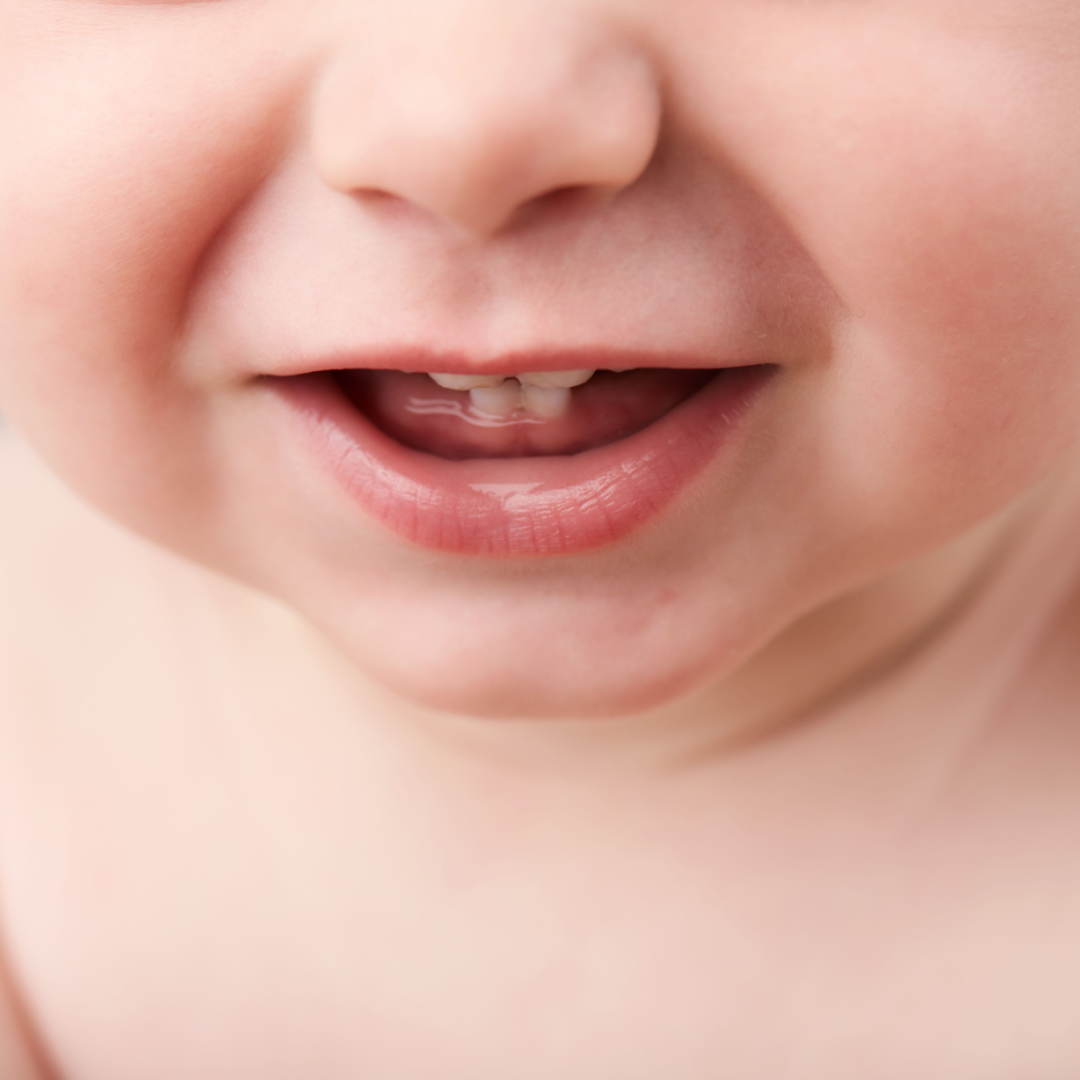There’s not so much anything new about baby teeth, except for even more evidence proving that baby teeth are precious. Some people still believe that baby teeth don’t deserve too much attention, because they’re not for life and the child will get another set when they’re about 6 years of age. The truth is that every tooth a baby has will form the pathway for their permanent teeth to follow. So, if baby teeth are missing, decayed or damaged, there’s a higher risk of problems occurring with their adult teeth.
Good oral hygiene starts even before your baby has any teeth and will set your child up for good oral health for a very long time.

What can I do to look after my baby’s teeth?
The best thing you can do is to care for your own. This means going to the dentist every six months, brushing your teeth twice each day and flossing daily. Using a fluoridated toothpaste and eating a diet low in sugar will all help to maintain your own oral health. If you care for your own teeth, you’re more likely to look after your child’s teeth as well.
What is the most common oral disease in children?
Believe it or not, tooth decay. This is highly contagious and babies only ‘catch’ it from other people who have active decay themselves. Most commonly, the bacteria which cause decay are passed onto babies by their parents. Kissing babies on the mouth, blowing on their food to cool it down, tasting their food before offering to them and sharing spoons and straws are the most common ways that bacteria can be transferred. This means that the baby’s saliva, which is intended to be protective, can become contaminated with bacteria which cause tooth decay.
Caring for your baby’s teeth, right from the start
Start good oral hygiene habits early. That way you and your baby will be used to following a routine which just becomes part of your everyday lives.
- Soon after birth, start wiping your baby’s gums and tongue with a clean, wet washer or gauze cloth. Be gentle and talk reassuringly to your baby. When babies are teething, their mouth can become a little more sensitive.
- Don’t let your baby go to sleep sucking on a bottle. Milk contains lactose, a form of milk sugar.
- Clean your baby’s teeth as soon as they erupt through their gums. This is generally between 8-12 months of age, sometimes earlier and sometimes later. Use a soft wet cloth or a small headed, baby toothbrush. Don’t share your own toothbrush with your baby; they need their own.
- Brush all your baby’s teeth and surfaces that you can reach. Make it fun by playing songs or using a phone app which has an in-built timer. The recommendation for tooth brushing is 2 minutes, but this is dependent on the number of teeth which need to be brushed.
- If your baby is cooperative, ask them to poke out their tongue. Decay causing bacteria multiply on the back of the tongue and brushing can be very
- Don’t use toothpaste until your child is 18 months of age. Then, start using a small amount of children’s fluoridated toothpaste and show them how to spit it out when you’re finished.
- Once your baby has started solid foods, offer them sips of cooled, boiled water from a sipper cup. Avoid offering them juice, soft drink or cordial.
- Take your child in to the dentist at around the time their first tooth appears or when they turn 1 year old, whichever comes first. Take them with you to your appointments and let them see you sitting in the dental chair.
- Check with your local council to see if your water supply is fluoridated. Speak with your dentist about the need for supplements if it’s not.
- Give your baby snacks to chew on which won’t damage their teeth. Carrot or celery sticks, cheese and fresh fruit are all good options. Make sure you supervise your baby carefully; sometimes they can quite literally bite off more than they can chew, especially if they only have their front (incisor) teeth.
Lift the lip
Check your baby’s teeth by lifting their top lip and rolling down their bottom lip. This will help you to see what’s going on around their gum margins. If you see white, brown or yellow spots on their teeth, make an appointment with your dentist to have your child checked. These spots can be a sign of tooth decay and may, with early intervention, not progress to further damage.
Speak with your dentist
If you’re concerned about any aspect of your baby’s teeth or oral development.
Written for Sudocrem by Jane Barry, Midwife and Child Health Nurse, November 2023.

